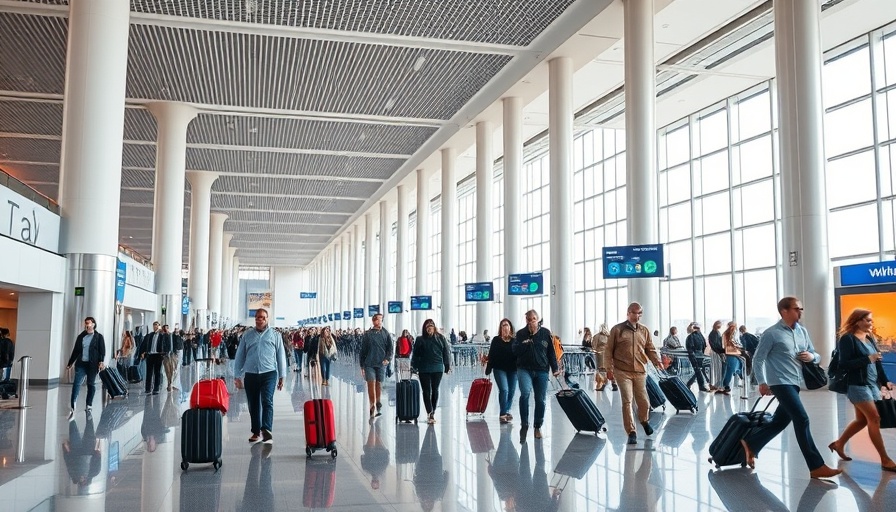
How European Aviation Can Regain Its Competitive Edge
In a world where air travel has became an integral part of our lives, the recent statements made by Armando Brunini, President of ACI Europe, during the association’s 35th Annual Congress in Athens have raised an alarm bell. He emphasized the urgent need for a strategy reset that would bolster the competitive edge of European aviation. With climate challenges and soaring global competition, the stakes have never been higher. While supporting efforts for decarbonization, Brunini pointed out that misguided policies threaten to stifle the very industry that connects us to cultures and experiences worldwide.
Understanding the Challenges: The Four Critical Drags on Competitiveness
Brunini identified four significant factors holding back the aviation sector in Europe:
- Unbalanced Climate Policy: Despite a strong commitment to decarbonization, the imposition of heavy taxes and strict mandates without adequate support creates an unfair burden, especially compared to other regions.
- Tax Burdens: European airlines face higher taxes, limiting their capacity to compete on a global scale while their international counterparts benefit from more favorable policies.
- Capacity Limitations: With airport capacity often struggling to meet demand, this creates bottlenecks, frustrating travelers and impacting the overall experience.
- Compromised Financial Resources: Many airlines are grappling with significant financial challenges, which hampers their ability to innovate and invest in the future.
Brunini's call to action isn’t just about survival; it's about thriving in an ever-changing global landscape. European aviation must adapt to ensure its legacy as a leader in the industry.
Why This Matters to Affluent Travelers
For wealthy travelers, the efficiency and reliability of air travel are non-negotiable. A decline in European aviation competitiveness could mean fewer options, higher costs, and compromised service quality. Brunini’s proposals for a revised aviation policy are crucial not just for economic performance, but for maintaining the travel experiences that luxury travelers expect.
The Future of Travel: New Trends in Aviation and Hospitality
As the aviation industry reshapes itself, distinct trends emerge that affluent travelers should watch for:
- Sustainable Hotels: The push for sustainability extends beyond airlines to the hospitality sector. Hotels are increasingly adopting eco-friendly practices, appealing to eco-conscious luxury travelers.
- Technological Innovations: Expect more seamless travel experiences powered by technology, from apps that simplify reservations to AI-driven customer service enhancements in hotels.
- Focus on Wellness: Development in hotel design is gravitating towards wellness, prioritizing health and well-being—factors that luxury travelers are placing higher value on.
Staying ahead of these trends can ensure that affluent travelers continue to enjoy exceptional travel experiences that meet modern expectations.
Conclusion: Steps Forward for the Aviation Industry
As Armando Brunini emphasizes a necessary reset in aviation strategy, it’s clear that action is needed not just from industry leaders but from policymakers. The future of European aviation depends on effective collaboration that supports competitiveness while recognizing the need for sustainability. For travelers, remaining informed and engaged with these developments is key to ensuring that the high standard of travel they enjoy remains intact.
To actively participate in organic discussions about these vital changes in the travel landscape, contact us today for more information or to book a free travel consultation!
 Add Row
Add Row  Add
Add 




Write A Comment